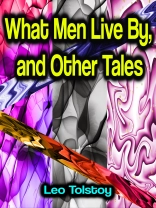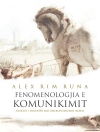What Men Live By, and Other Tales Leo Tolstoy – ‘What Men Live By and Other Tales’ compiles tales that handle intricate philosophical issues in a simple and engaging way to incite the mind.In What Men Live By you’ll encounter a kind and humble shoemaker, Simon, who, one day, goes out to buy sheep-skins to sew a winter coat for his wife and himself to share.Unable to collect the full amount, he only receives twenty Kopeks to buy the skins. Simon is disheartened and spends the twenty Kopeks on Vodka before heading back home…This story, along with other subtle, beautiful, and timeless tales, will immerse you in the world of Russia’s most regarded mind.The book comes with three other tales telling of wisdom, acceptance, kindness, and forgiveness.Three Questions follows the story of a king who wants to know the answer to the three most important questions in life to seek enlightenment.The Coffee-House of Surat, tells about a coffee shop in the Indian town of Surat that has many travelers and foreigners meet from all over the globe to chat. An educated Persian theologian pays a visit to the coffee shop one day.How Much Land Does a Man Need? recounts the tale of Pahom, a peasant, who claims that he would not fear the Devil if he had enough land. When the Devil overhears this, he decides to put him to the test.Immerse in to examine the human condition described by one of the world’s greatest pens.
Mengenai Pengarang
Lev Nikolayevich Tolstoy (Russian: ; most appropriately used Liev Tolstoy; commonly Leo Tolstoy in Anglophone countries) was a Russian writer who primarily wrote novels and short stories. Later in life, he also wrote plays and essays. His two most famous works, the novels War and Peace and Anna Karenina, are acknowledged as two of the greatest novels of all time and a pinnacle of realist fiction. Many consider Tolstoy to have been one of the world’s greatest novelists. Tolstoy is equally known for his complicated and paradoxical persona and for his extreme moralistic and ascetic views, which he adopted after a moral crisis and spiritual awakening in the 1870s, after which he also became noted as a moral thinker and social reformer.His literal interpretation of the ethical teachings of Jesus, centering on the Sermon on the Mount, caused him in later life to become a fervent Christian anarchist and anarcho-pacifist. His ideas on nonviolent resistance, expressed in such works as The Kingdom of God Is Within You, were to have a profound impact on such pivotal twentieth-century figures as Mohandas Gandhi and Martin Luther King, Jr.












